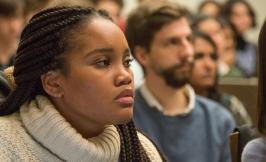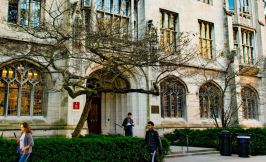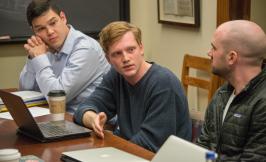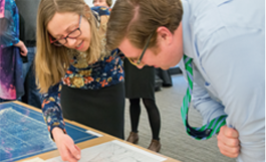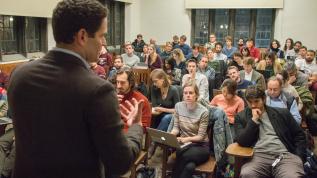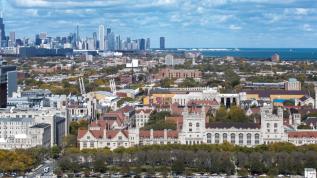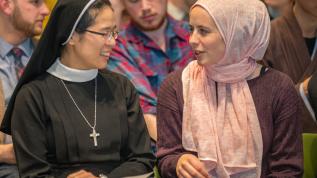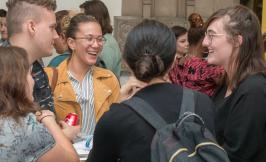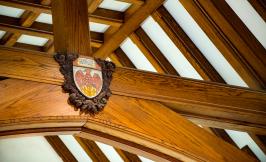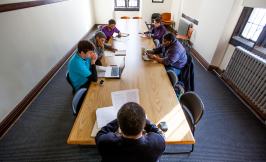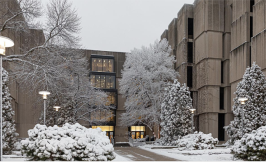Admissions
We want to make the admissions process as seamless for applicants as possible. Click below for information on candidate statements, fee waivers, international student admissions, and more.
Degree Programs
Doctoral Program (PhD)
The Doctor of Philosophy (PhD) program is a rigorous, interdisciplinary course of study that prepares students for careers in research, teaching, and publicly engaged leadership. Students study the world's religions using a variety of methods, conduct original and advanced research, and join others in the creation of new knowledge.
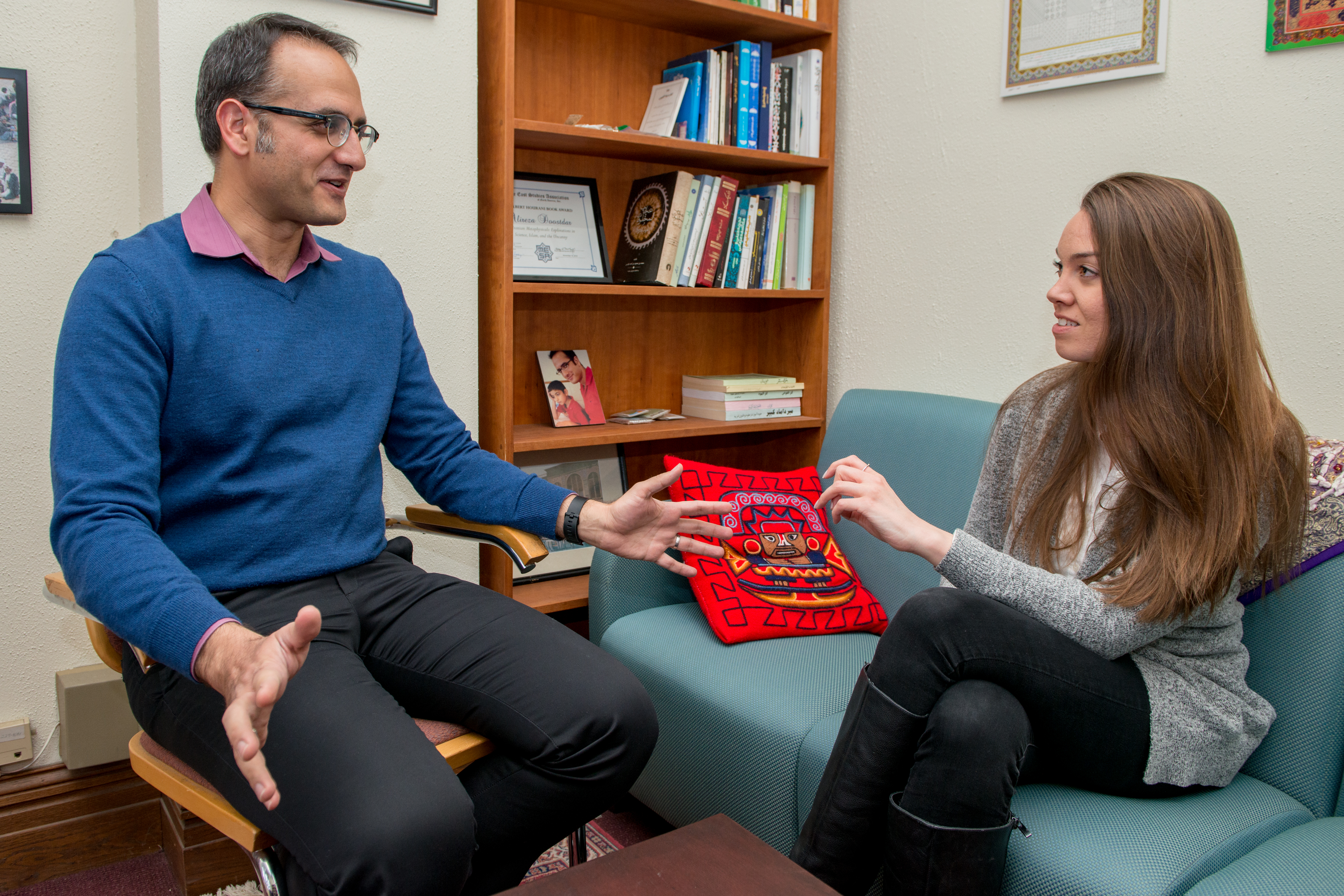
Masters of Arts (MA)
The Master of Arts (MA) is a 2-year program providing a foundation in the academic study of religion. Students have the opportunity to study the cultures, languages, thought, practices, and institutions of religious traditions, both ancient and modern. We prepare students for doctoral study in religion or related fields but also encourage the program as means to pursue other professions for which the study is religion is an important component.

Masters of Divinity (MDiv)
The Master of Divinity (MDiv) program is a dynamic three-year curriculum combining coursework in the study of religion and the arts of religious leadership with significant field work in multiple settings, alongside ongoing participation in a cohort-based learning community that nurtures students’ intellectual, spiritual, professional and personal formation.
We offer several Dual Degree Programs:
- MDiv & Master of Public Policy (MPP) with the Irving B. Harris School of Public Policy Studies
- MDiv & Juris Doctor (JD) with The University of Chicago Law School
- MDiv & Master of Arts in Social Work and Social Welfare (MASW) with The University of Chicago Crown Family School of Social Work, Policy, and Practice
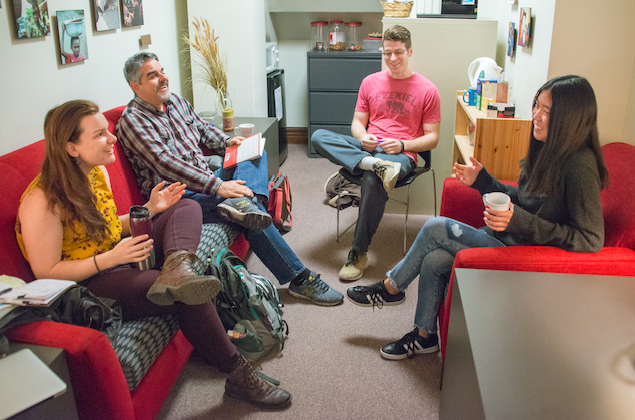
Masters of Arts in Religious Studies (AMRS)
The AMRS program provides a broad academic grounding in religious studies. It is an ideal program for professionals looking to connect their current field of practice to the study of religion (e.g. law, medicine, business, education, journalism, the arts). Students may enroll either full or part time.
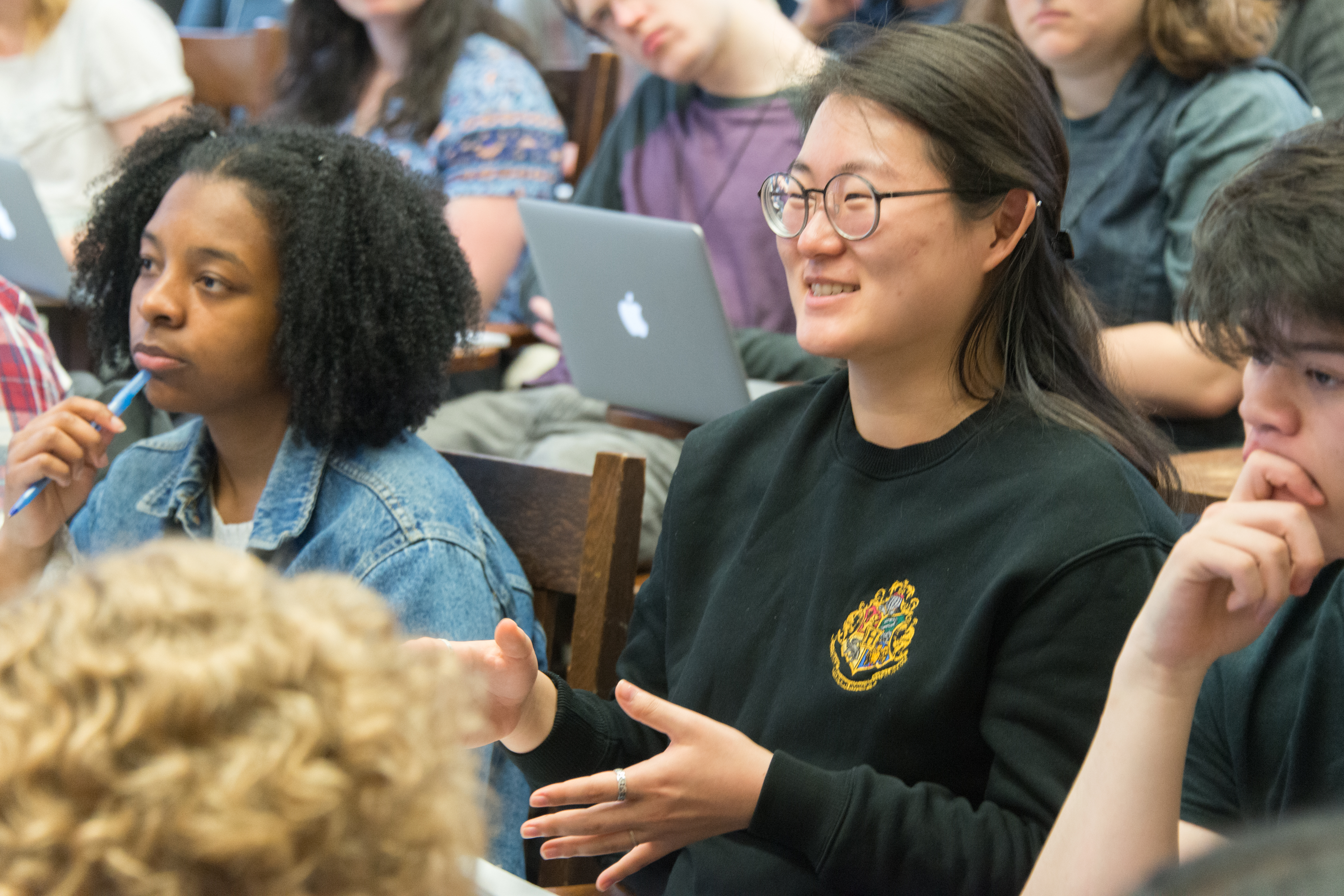
Undergraduate Program in Religious Studies
for UChicago College studentsCollege students of any major may take electives in Religious Studies, and we offer both a Major and a Minor. The field of Religious Studies engages perennial questions about religion and human society. Explore numerous religious traditions, including Buddhism, Christianity, Hinduism, Islam, and Judaism.
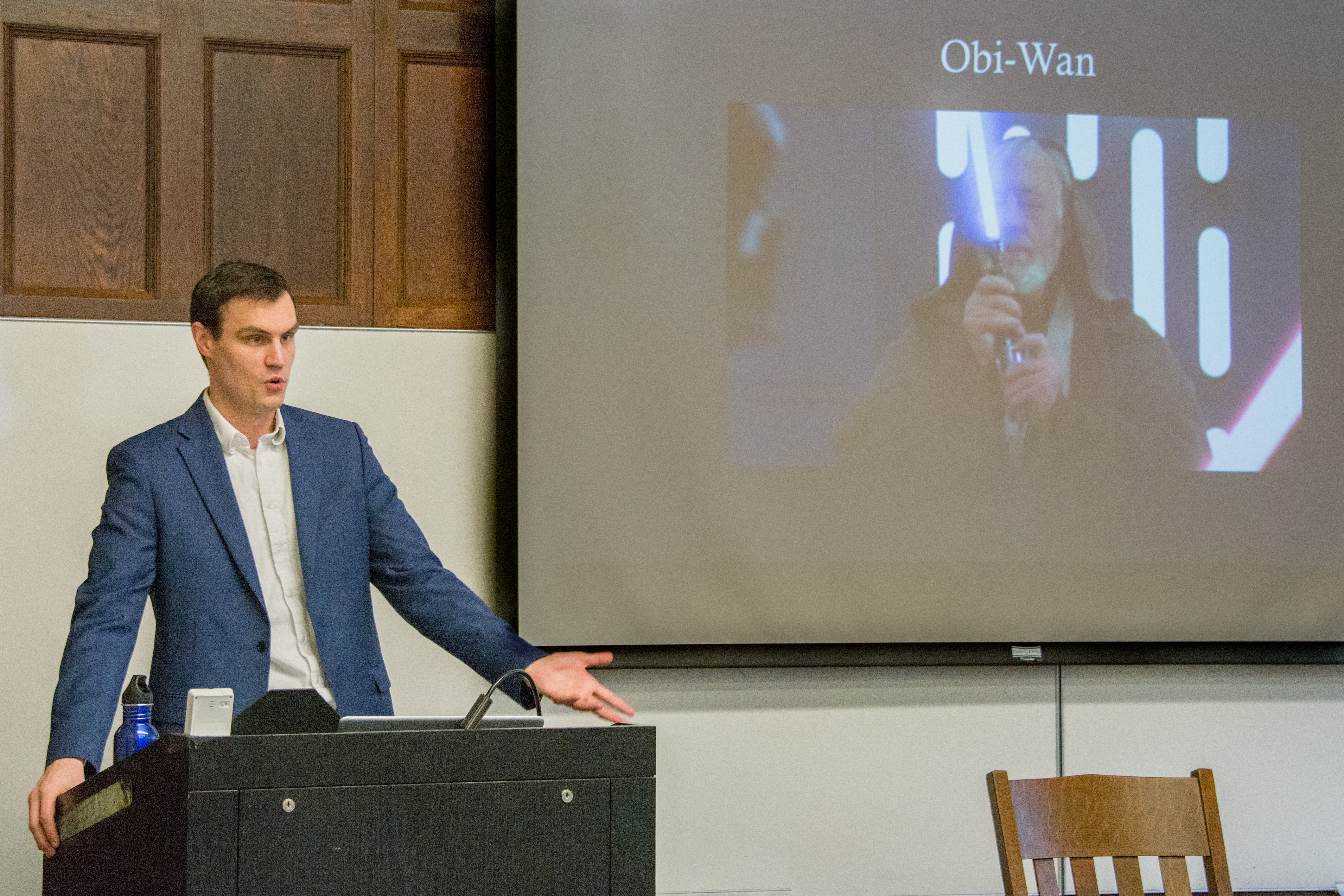
Dr. Johnson teaching "Star Wars and Religion" in Spring 2019
Joint BA Programs
The Divinity School offers two joint Bachelor’s/Master’s Programs with the University of Chicago College.
The BA/AMRS is a four-year program. In this program, students acquire foundational knowledge in the study of religion and its adjacent fields to be applied in a variety of professional contexts requiring a graduate degree.
The BA/MA is a five-year program and is recommended for students who are aiming for a doctorate or an academic career or who want to improve their professional competitiveness through an extended course of study.
ABOUT THE DIVINITY SCHOOL
One of the world’s leading institutions in the academic study of religion, the Divinity School prepares students for careers of scholarship, teaching, and public religious leadership. The School generates knowledge about the history, theology, beliefs, and practices of world religions through a broad and rich array of methodological and theoretical approaches that is deeply informed, intellectually curious, and honestly engaged. No tradition is given a privileged intellectual place here; the claims of all religious traditions are assessed by standards of reasoned inquiry. The result is a diverse community of scholars and professionals who guide the public’s understanding of religion.



